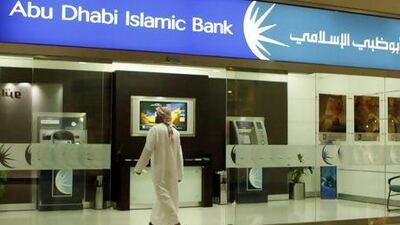Abu Dhabi Islamic Bank's (ADIB) debut perpetual sukuk have rallied since their sale last month on bets the lender is well positioned to capitalise on the emirate's economic upturn, even as debt of emerging market peers dropped.
The world's first dollar-denominated Islamic notes that do not mature yielded 6.04 per cent yesterday, down 34 basis points, or 0.34 percentage point, since their November 8 issuance, according to data compiled by Bloomberg. Over the same period, the average yield on HSBC/Nasdaq Dubai's US Dollar Sukuk Financial Services Index gained 17 basis points to 2.9 per cent.
ADIB, the UAE's second-biggest Sharia-compliant lender, sold $1 billion of so-called hybrid Tier-1 bonds to boost capital as it seeks to expand loan growth from this year's 5 per cent. Lending opportunities are climbing in Abu Dhabi, holder of most UAE oil reserves, as the government forecasts economic growth will accelerate to 5.7 per cent a year through 2016.
The bank's debt "outperformed the sector, benefiting from its strong position in the Abu Dhabi retail market," Apostolos Bantis, a credit analyst at Commerzbank, said. The notes "should provide additional buffer for further growth and has strengthened the bank's capitalisation levels," he said.
Lenders hold Tier 1 capital, which includes common stock, retained earnings and perpetual preferred stock and debt, to guard against unexpected losses. ADIB's notes also beat other perpetual bonds in the period, with the effective yield on Bank of America Merrill Lynch's Perpetual Preferred Securities Index rising 20 basis points to 4.85 per cent.
Abu Dhabi is home to about 6 per cent of proven global oil reserves. The pickup in economic growth from an estimated 3.9 per cent this year will happen amid government plans to diversify away from oil by investing in metals, chemicals and the arts, including branches of the Guggenheim and Louvre. If the government meets its 2013 target, growth will exceed expansion in Saudi Arabia and Qatar of 3.9 per cent and 5 per cent, respectively, estimates compiled by Bloomberg show.
* Bloomberg News

